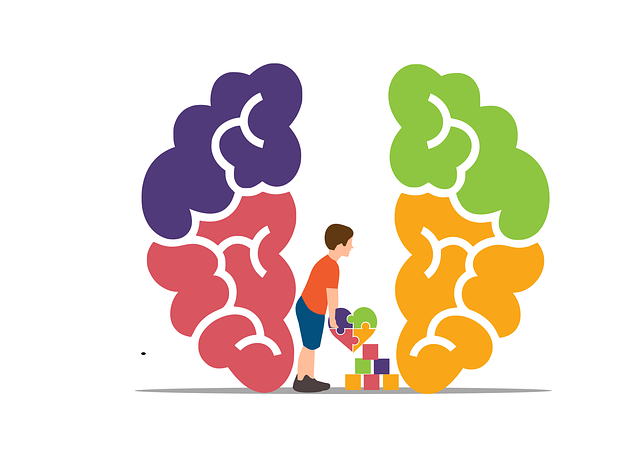Mental health policies significantly impact access and quality of support, with effective strategies like early intervention and integrated care reducing anxiety symptoms and enhancing community resilience. Evidence-based practices, such as Englewood Anger Management Therapy (EAMT), integrate conflict resolution to address root causes of mental issues. Well-designed policy initiatives, through continuous evaluation and collaboration, break down barriers to care and reduce stigma, fostering mental health awareness. Advocacy drives tailored solutions for diverse communities, demystifying mental illness with accessible quality care, including mood management programs. EAMT's innovative approach, combining counseling, group sessions, and crisis intervention, holistically improves emotional well-being, inspiring scalable Mental Wellness Coaching Programs to reach a broader audience.
Mental health policy analysis and advocacy play a pivotal role in shaping societies’ overall well-being. This article delves into three critical aspects of mental healthcare improvement. First, we explore the intricate web of mental health policies and their profound impact on individuals’ lives. Next, it highlights the power of advocacy in transforming services. Finally, presenting Englewood Anger Management Therapy as a compelling case study, demonstrating how innovative programs can serve as models for positive change within the mental health landscape.
- Understanding Mental Health Policy and its Impact
- The Role of Advocacy in Shaping Mental Health Services
- Case Study: Englewood Anger Management Therapy as a Model for Change
Understanding Mental Health Policy and its Impact

Understanding Mental health policy is paramount as it shapes the accessibility and quality of services for individuals seeking support. These policies influence funding allocation, service provision, and public perception of mental well-being. Effective mental health policy promotes early intervention, integrates care across various settings, and fosters community-based solutions. By implementing evidence-based practices, such as Englewood Anger Management Therapy, and integrating conflict resolution techniques, communities can address underlying causes of mental distress, ultimately reducing symptoms of anxiety relief and enhancing overall resilience.
The impact of well-designed policy initiatives is far-reaching, affecting not just individuals but entire communities. They can break down barriers to care, encourage mental health awareness, and reduce the stigma associated with seeking help. By advocating for policies that prioritize mental health, we ensure that everyone has access to resources and support, ultimately leading to healthier, more resilient societies. This involves continuous evaluation, adaptation, and collaboration between policymakers, healthcare providers, and community organizations.
The Role of Advocacy in Shaping Mental Health Services

Advocacy plays a pivotal role in shaping mental health services, ensuring they meet the diverse needs of individuals across communities. Through powerful voices and collective action, advocates drive change by highlighting gaps in care, challenging systemic barriers, and promoting evidence-based practices. This is where organizations like Englewood Anger Management Therapy step in, utilizing Mind Over Matter principles to empower individuals with effective coping mechanisms and emotional intelligence.
By advocating for improved access to quality mental health services, including specialized programs for mood management, these initiatives aim to reduce the stigma surrounding mental illness. Effective advocacy ensures that policies reflect the latest research and best practices, fostering environments where people feel safe to seek help without fear of judgment. This, in turn, promotes early intervention and long-term recovery, ultimately enhancing overall well-being.
Case Study: Englewood Anger Management Therapy as a Model for Change

Englewood Anger Management Therapy (EAMT) serves as a compelling case study, demonstrating how targeted interventions can significantly impact mental health outcomes. This therapy model focuses on anger management and emotional well-being promotion techniques, addressing a critical aspect of mental wellness often overlooked in traditional care settings. By employing evidence-based practices, EAMT offers a structured program that equips individuals with effective coping strategies to manage anger and reduce the risk of escalating into crises.
The therapy’s success lies in its holistic approach, combining individual counseling, group sessions, and crisis intervention guidance tailored to each participant’s needs. This multi-faceted strategy not only enhances emotional regulation but also fosters a supportive community where participants learn from one another. The development of Mental Wellness Coaching Programs inspired by EAMT has the potential to scale this model, making these effective interventions accessible to a broader population in need of support for their mental health and emotional well-being.
Mental health policy analysis and advocacy play a pivotal role in shaping accessible, effective, and inclusive healthcare systems. By understanding the impact of policy decisions, we can empower advocates to drive change. The case study of Englewood Anger Management Therapy highlights how innovative programs can transform lives, serving as a model for policymakers and advocates worldwide. Together, through strategic analysis and collaborative action, we can ensure mental well-being becomes a priority, leading to more equitable and resilient communities.














